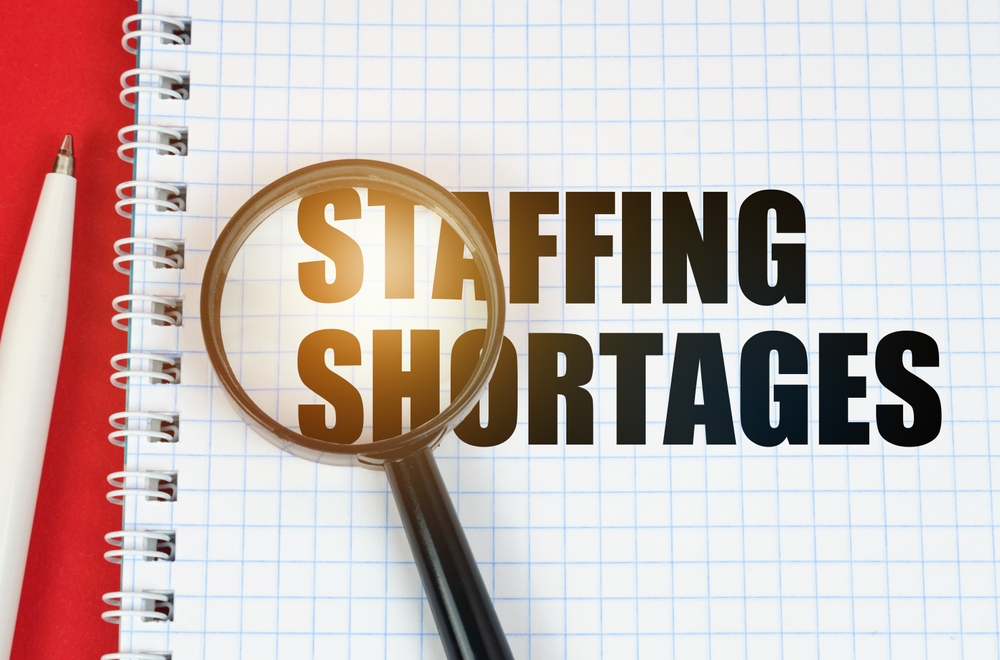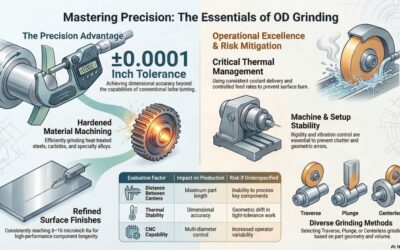From the automotive industry to education, the state has seen a significant rise in strikes and labor disputes. As a result, the demand for strike staffing services has grown exponentially. Employers, facing disruptions and production halts, need to understand the dynamics of strike staffing, the current trends in Michigan, and the best practices to navigate these turbulent times effectively. This article provides a comprehensive guide for employers seeking to understand and implement strike staffing strategies in Michigan, focusing on current trends, legal considerations, and practical steps to maintain operations during labor disputes.
The Rise in Labor Strikes in Michigan
Michigan, a state with a rich history of labor movements, has always been a focal point for unions and worker rights. The state’s industrial base, particularly its automotive sector, has traditionally been a hotbed of union activity. In recent years, however, there has been a noticeable uptick in labor strikes across various sectors. Several factors contribute to this rise, including:
- Economic Uncertainty: The aftermath of the COVID-19 pandemic, coupled with supply chain disruptions and inflationary pressures, has led to economic uncertainty. Workers, feeling the pinch of rising living costs and stagnant wages, are increasingly resorting to strikes to demand better pay and working conditions.
- Union Resurgence: There has been a resurgence of union activity in Michigan, as seen in high-profile strikes by the United Auto Workers (UAW) and other unions. The push for better wages, benefits, and job security has energized workers across different industries, leading to more frequent labor actions.
- Legislative Changes: Recent legislative changes and proposals at the state and federal levels have emboldened unions. Proposals to make unionization easier and increase worker protections have contributed to a more favorable environment for labor strikes.
- Worker Empowerment: The labor market dynamics have shifted, with workers feeling more empowered due to labor shortages and high demand for skilled labor. This empowerment has translated into a willingness to strike to secure better employment terms.
The Importance of Strike Staffing for Employers
For employers, strikes can have severe implications. Production halts, financial losses, reputational damage, and disruptions to customer service are just a few of the challenges posed by labor strikes. As the frequency and intensity of strikes increase in Michigan, employers must have robust contingency plans in place to mitigate these risks. This is where strike staffing becomes crucial.
Strike staffing involves hiring temporary workers, often through specialized staffing agencies, to maintain business operations during a strike. These workers can step in to perform essential tasks, ensuring that the company continues to function despite the absence of its regular workforce. Effective strike staffing can help employers:
- Maintain Production: By having a pool of trained temporary workers ready to step in, employers can minimize production downtime and continue meeting customer demands.
- Protect Revenue: Keeping operations running during a strike helps protect revenue streams and minimizes financial losses.
- Ensure Safety and Security: Strike staffing can include hiring security personnel to safeguard company assets and ensure the safety of employees and temporary workers.
- Mitigate Reputational Damage: Demonstrating that the company can handle labor disputes professionally and maintain operations can help protect the company’s reputation.
Current Trends in Strike Staffing in Michigan
The growing need for strike staffing in Michigan has led to several trends that employers should be aware of:
- Specialized Strike Staffing Agencies: There has been a rise in specialized strike staffing agencies that provide trained workers specifically for strike situations. These agencies often offer comprehensive services, including training, logistics, and security.
- Increased Use of Technology: Strike staffing firms are increasingly leveraging technology to streamline the hiring process, track worker performance, and ensure compliance with labor laws. Online platforms and mobile apps are being used to match temporary workers with employers quickly.
- Focus on Compliance and Training: With the complexity of labor laws and the potential for legal challenges, there is a growing emphasis on compliance and training. Strike staffing agencies ensure that their workers are adequately trained and aware of the legal implications of working during a strike.
- Diversity in Temporary Workforce: The temporary workforce for strike staffing is becoming more diverse, with workers from various backgrounds and skill levels being employed to fill different roles, from production line workers to administrative staff.
- Collaboration with Legal Experts: Employers are increasingly collaborating with legal experts to navigate the intricacies of strike staffing. This includes understanding labor laws, union contracts, and potential legal repercussions of hiring temporary workers during a strike.
Legal Considerations for Strike Staffing in Michigan
Employers must navigate several legal considerations when implementing strike staffing in Michigan. Understanding these legal aspects is crucial to avoid potential litigation and ensure compliance with state and federal laws.
- National Labor Relations Act (NLRA): The NLRA governs the rights of workers and employers in relation to union activities. Employers must ensure that their actions during a strike do not violate workers’ rights to organize, bargain collectively, and engage in concerted activities.
- Right to Hire Replacement Workers: In many cases, employers have the right to hire permanent replacement workers during an economic strike. However, during an unfair labor practice strike, employers may only hire temporary replacements. Understanding the distinction between these types of strikes is critical.
- Union Contracts and Collective Bargaining Agreements: Employers must carefully review their union contracts and collective bargaining agreements to understand the specific terms related to strikes and replacement workers. Violating these terms can lead to legal challenges and further labor disputes.
- Discrimination and Retaliation Laws: Employers must avoid any form of discrimination or retaliation against employees who choose to strike. This includes ensuring that replacement workers are not hired in a way that targets specific groups or individuals based on their participation in the strike.
- Health and Safety Regulations: Employers are responsible for ensuring the health and safety of both regular employees and temporary workers. This includes providing appropriate training, protective equipment, and ensuring safe working conditions during a strike.
Best Practices for Employers Implementing Strike Staffing
Implementing strike staffing requires careful planning and execution. Here are some best practices for employers looking to maintain operations during a strike:
- Develop a Strike Contingency Plan: Having a comprehensive contingency plan is crucial. This plan should outline the steps to be taken in the event of a strike, including communication strategies, staffing requirements, and security measures.
- Partner with Specialized Strike Staffing Agencies: Collaborating with agencies that specialize in strike staffing can provide access to trained workers and expert advice. These agencies can handle the logistics of hiring, training, and deploying temporary workers, allowing employers to focus on core operations.
- Train Temporary Workers: Proper training is essential to ensure that temporary workers can perform their duties effectively and safely. Employers should provide training on company policies, safety protocols, and the specific tasks required.
- Communicate Clearly with Employees: Open communication with employees is critical during a strike. Employers should keep both regular and temporary workers informed about the company’s actions, policies, and expectations. Transparent communication can help reduce tensions and prevent misunderstandings.
- Engage Legal Counsel: Consulting with legal experts can help employers navigate the complexities of labor laws and union contracts. Legal counsel can provide guidance on hiring practices, compliance, and handling potential legal challenges.
- Ensure Fair Treatment of Temporary Workers: Treating temporary workers fairly and respectfully is important for maintaining morale and productivity. This includes providing appropriate compensation, working conditions, and support during their employment.
- Monitor and Evaluate: Regular monitoring and evaluation of the strike staffing process are essential to identify any issues and make necessary adjustments. Employers should track performance, compliance, and safety metrics to ensure the success of their strike staffing efforts.
The Role of Public Perception and Media in Strike Staffing
Public perception and media coverage play a significant role in shaping the outcomes of strikes and how companies approach strike staffing. Media coverage can influence public opinion about the legitimacy of a strike, the demands of the workers, and the actions taken by employers. For businesses in Michigan, managing public perception during a strike is critical to maintaining their brand image and customer loyalty. Here’s how this dynamic plays out:
- Media Framing: The media often frames strike coverage either in favor of the workers or the employers, depending on the circumstances and the information available. Companies need to be proactive in their communication strategies, providing transparent, accurate, and timely updates to the media and the public.
- Social Media Impact: Social media platforms have amplified the voices of workers and unions, allowing them to garner public support quickly. Companies need to monitor social media channels and engage with stakeholders to address concerns and share their perspectives on the strike and the reasons behind their decisions.
- Crisis Communication Strategies: Employers should have a crisis communication plan in place that includes handling negative press and public backlash. This plan should involve designated spokespersons, prepared statements, and a clear narrative that explains the company’s position and the measures taken to ensure employee safety and fair treatment during a strike.
- Community Relations: Companies should engage with the local community to maintain support during a strike. This can include outreach programs, community involvement, and transparent communication about how the strike staffing measures are being implemented to protect jobs and local economic stability.
Economic Impact of Strikes on Local Economies in Michigan
Strikes not only affect the immediate company involved but also have broader implications for local economies, especially in a state like Michigan, where entire communities often depend on a single industry or employer. The economic ripple effects of strikes can be profound:
- Impact on Local Businesses: When a major employer experiences a strike, local businesses that rely on the purchasing power of its employees also suffer. This includes retail stores, restaurants, service providers, and other small businesses that may see a drop in sales and revenue.
- Tax Revenue and Public Services: Prolonged strikes can lead to decreased tax revenue for local governments, impacting public services and infrastructure projects. A reduction in income tax collections and sales tax revenue can strain municipal budgets, leading to potential cuts in services.
- Supply Chain Disruptions: Strikes in critical industries such as automotive manufacturing can lead to supply chain disruptions, affecting not only the primary company but also suppliers, distributors, and retailers. These disruptions can lead to production delays, financial losses, and potential layoffs in associated businesses.
- Long-term Economic Stability: Frequent strikes or labor disputes can create an image of instability, which might deter future investments and business expansions in the region. Companies considering setting up operations in Michigan might be cautious due to perceived risks of labor unrest.
The Impact of Labor Law Reforms on Strike Staffing Needs
Labor law reforms at both state and federal levels can significantly impact the demand for strike staffing and how employers approach labor disputes. Employers in Michigan need to stay informed about legislative changes that could affect their rights and responsibilities during a strike.
- State-Level Reforms: Michigan’s labor laws have evolved over the years, impacting union activities and strike regulations. Recent proposals to enhance worker protections, simplify unionization processes, and increase penalties for unfair labor practices could alter the strike landscape. Employers need to stay abreast of these changes to ensure compliance.
- Federal Legislation: Federal initiatives such as the PRO (Protecting the Right to Organize) Act aim to strengthen workers’ rights to organize and engage in collective bargaining. If passed, such legislation could increase the likelihood of strikes by making it easier for workers to unionize and take collective action. Employers would need to prepare for increased strike activity and the associated need for strike staffing.
- Regulatory Compliance: Changes in labor laws often come with new compliance requirements. Employers need to ensure that their strike staffing practices adhere to updated regulations. This may involve consulting legal experts, updating policies, and training management staff on the new legal landscape.
- Collective Bargaining Agreements (CBAs): Changes in labor laws can influence the terms of collective bargaining agreements. Employers should review and, if necessary, renegotiate CBAs to reflect current legal standards and mitigate the risk of strikes and labor disputes.
Post-Strike Recovery: Strategies for Rebuilding and Moving Forward
After a strike, the road to recovery is critical for both the employer and the employees. The end of a strike does not mean the end of challenges; companies need to focus on rebuilding trust, restoring operations, and ensuring long-term stability.
- Reintegrating Workers: Bringing back regular employees after a strike requires careful management. Employers should have a reintegration plan that includes re-training, team-building activities, and open communication channels. The goal is to reintegrate employees smoothly and address any lingering resentment or dissatisfaction.
- Evaluating Strike Staffing Effectiveness: Employers should conduct a thorough evaluation of the strike staffing process. This includes assessing the performance of replacement workers, the effectiveness of training programs, and the impact on overall operations. Lessons learned should be documented and used to improve future contingency planning.
- Improving Labor Relations: Post-strike recovery offers an opportunity to improve labor relations. Employers should engage in dialogue with employees and union representatives to address grievances, negotiate fair agreements, and prevent future disputes. Building a cooperative relationship with the union can help create a more stable work environment.
- Restoring Reputation and Customer Confidence: Strikes can damage a company’s reputation and customer confidence. Employers should implement a public relations strategy to rebuild their brand image. This can include community outreach, positive media coverage, and initiatives that highlight the company’s commitment to employee welfare and customer satisfaction.
- Long-term Planning and Risk Management: Employers should incorporate the lessons learned from the strike into their long-term strategic planning. This includes developing robust risk management frameworks, improving supply chain resilience, and ensuring that contingency plans are regularly updated and tested.
Managing Strikes in Michigan
As labor dynamics continue to evolve, the demand for strike staffing services in Michigan is likely to grow. Several factors will shape the future of strike staffing in the state:
- Technological Advancements: The integration of technology in strike staffing will continue to improve efficiency and responsiveness. Automation, AI-driven platforms, and real-time tracking will enhance the ability of staffing agencies to match workers with employers quickly.
- Regulatory Changes: Potential changes in labor laws at the state and federal levels could impact the rules governing strike staffing. Employers will need to stay informed about legislative developments to ensure compliance.
- Focus on Worker Rights and Safety: The emphasis on worker rights and safety will remain a key consideration. Employers and staffing agencies will need to prioritize the well-being of both regular and temporary workers to maintain a positive work environment.
- Collaboration and Partnership: The trend of collaboration between employers, staffing agencies, and legal experts will continue. Building strong partnerships will be essential for successfully navigating labor disputes and strike situations.
Michigan’s growing need for strike staffing reflects broader trends in labor relations and economic dynamics. Employers must be proactive, ethical, and strategic in their approach to handling strikes and labor disputes. By understanding the role of public perception, economic impact, ethical considerations, labor law reforms, and post-strike recovery, companies can navigate these challenges effectively. Maintaining a focus on fair treatment, compliance, and open communication will not only help employers manage strikes but also build a foundation for long-term success and stability in Michigan’s diverse economic landscape.










